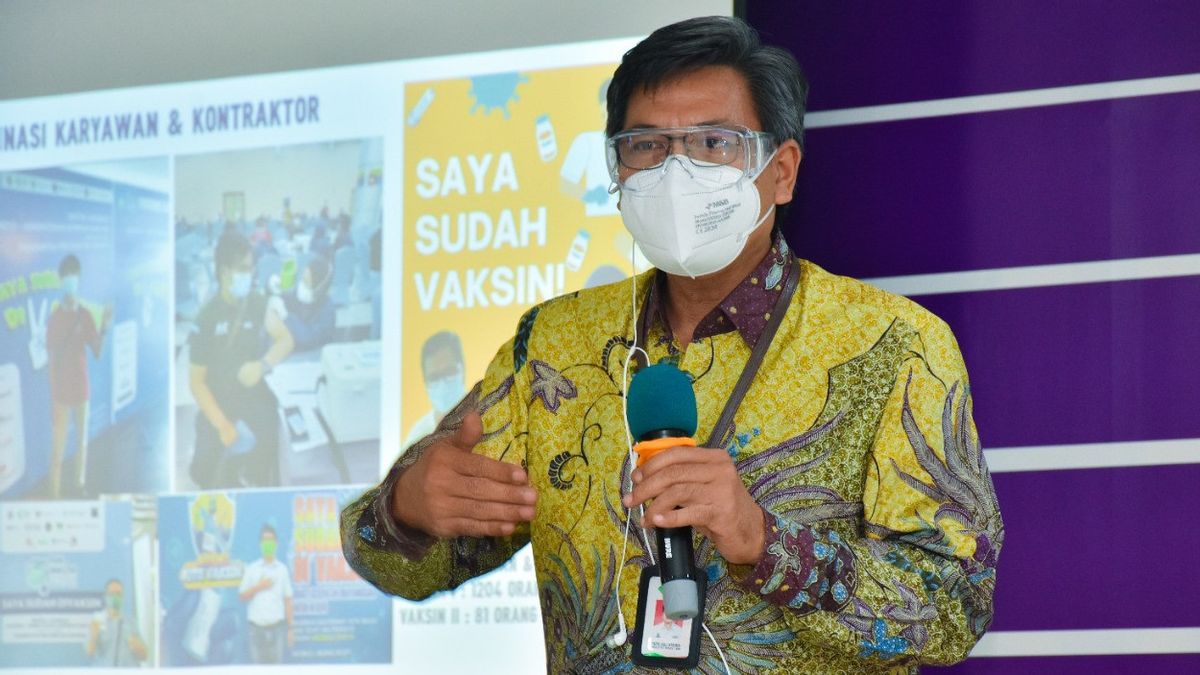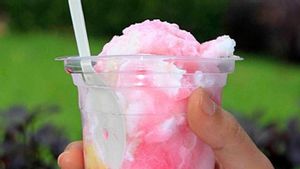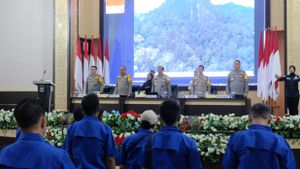JAKARTA - The Ministry of Industry (Kemenperin) continues to encourage domestic industrial processed products to penetrate export markets, such as the European Union. Therefore, the Ministry of Industry is focused on supporting increasing the competitiveness of exported industrial products.
"We are optimistic that Indonesia's bargaining position with Europe should be quite good, including what has been done by the processing industry in the agro sector, especially processed palm oil products," said Director General of Agro Industry at the Ministry of Industry Putu Juli Ardika in Jakarta, Saturday, January 28.
Putu emphasized that regarding the domestic oil palm processing revolution, the Ministry of Industry already has a work unit that handles the green industry, so as to encourage the implementation of green industry policies.
In the near future, Putu said, a new technology for steamless palm oil extraction (Steamless Palm Oil Treatment) will be introduced, so that carbon dioxide (CO2) emissions can be reduced considerably.
"This technology will have an impact on factory locations that no longer need to be close to rivers. So, it can be located in plantations, so it is more efficient," he said.
"There is no need for bleaching, but also using pasteurization technology, so that nutrition (betacarotene, provitamine A) is still maintained and does not need to be confirmed," he continued.
Furthermore, Putu said, that cocoa and coffee derivative products can actually meet the provisions in the European Union market.
"We export 70 percent of our cocoa processed products and already have various international certifications, such as certification, not from deforestation land, fair trade certificates, and others," he said.
Meanwhile, for coffee products, there are currently 39 geographical indications in Indonesia that are a separate advantage entering the European Union market.
According to Putu, collaboration between producers and industry operators is needed to meet export requirements to the European Union market. "An agreement is needed regarding how to pay or the cost burden related to the work data," he said.
Meanwhile, Indonesian Ambassador to Belgium and Luxembourg Andri Hadi explained that the EU Regulation on Forestation-Free Supply policy is to minimize the consumption of products originating from supply chain, deforestation, or land degradation.
"It is unavoidable that Indonesia needs to fix the domestic processing system, in order to continue to adopt a sustainable and environmentally friendly system," he said.
This means that Indonesian producers need to diversify their export goals to other countries that have easier requirements. If you want to continue to export to the European Union, the industrial sector needs to comply with the provisions of the European Union's Deforestation regulations.
"Since December 31, 2020, only products have been produced from deforestation-free land or land degradation that may enter or leave the European Union," said Andri.
Deforestation itself is a structural change to forests in the form of land conversion from naturally generating and primary forest to plantation forests.
According to Andri, the industry that has the most impact on the EU Regulation on Deforestation-Free Supply Chain policy is palm oil products, considering palm oil is Indonesia's most sustainable and certified superior product (ISPO, RSPO).
"The implementation of the EU Regulation on Deforestation-Free Supply Chain policy basically adds to the administrative burden for exporters in carrying out export activities," he added.
For your information, the value of Indonesia's exports to the European Union for agro-industrial products reached 6.04 million US dollars in 2021 or higher than the previous year, which was 4.5 million US dollars.
However, after the agreement of the EU Regulation on Deforestation-Free Supply by the European Commission, the European Council and the European Parliament, the government needs to anticipate so that agro-industrial products from Indonesia can be competitive.
The English, Chinese, Japanese, Arabic, and French versions are automatically generated by the AI. So there may still be inaccuracies in translating, please always see Indonesian as our main language. (system supported by DigitalSiber.id)








